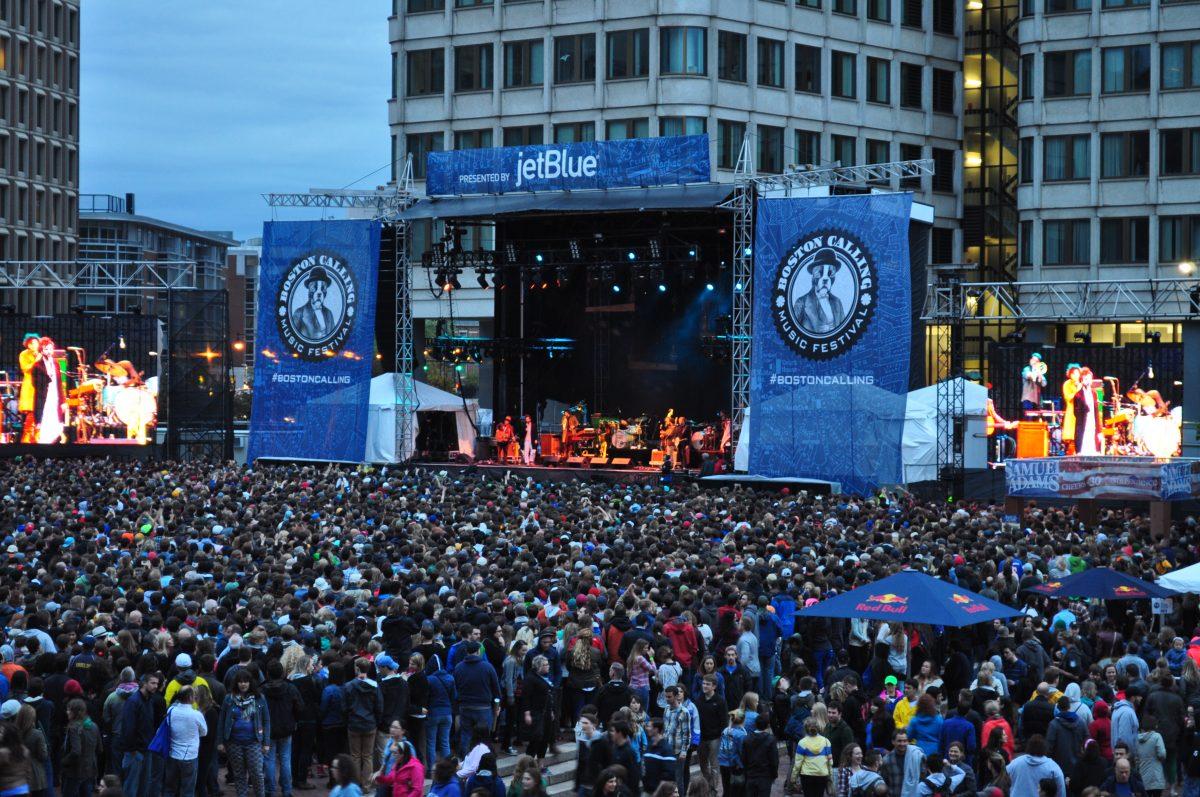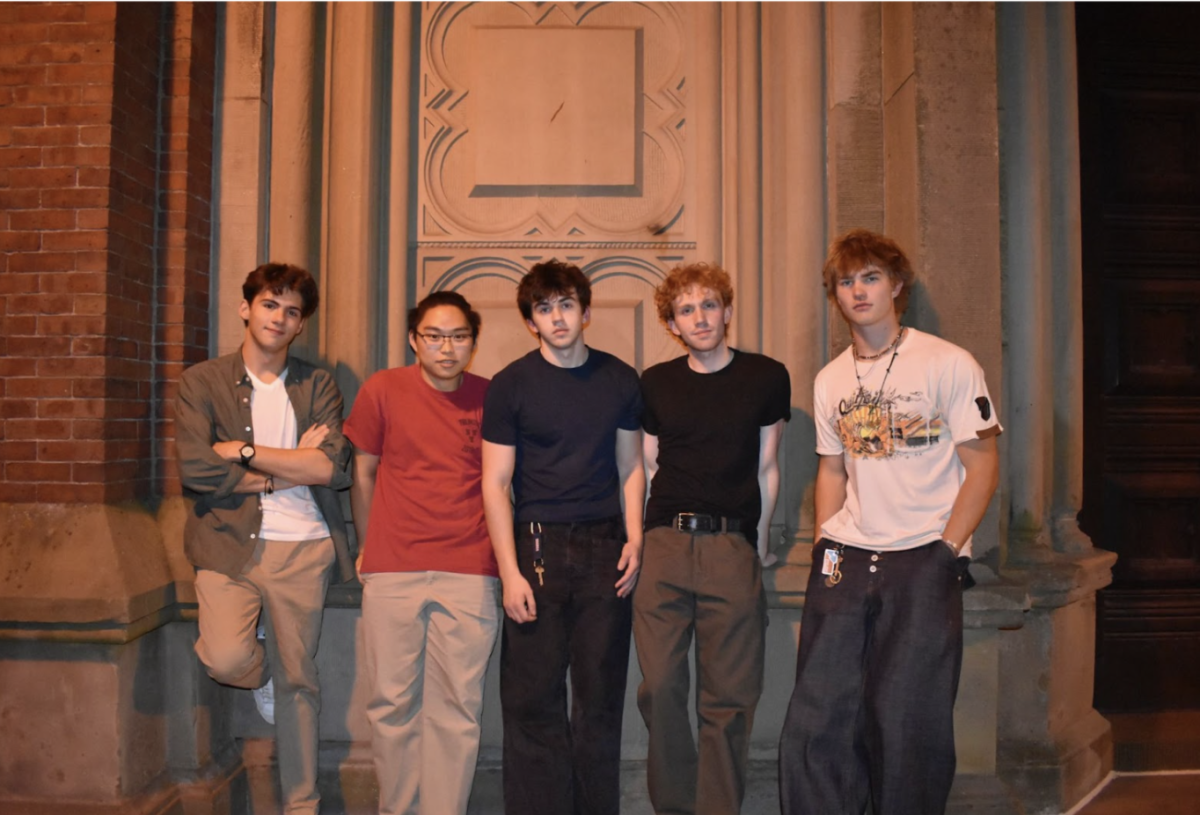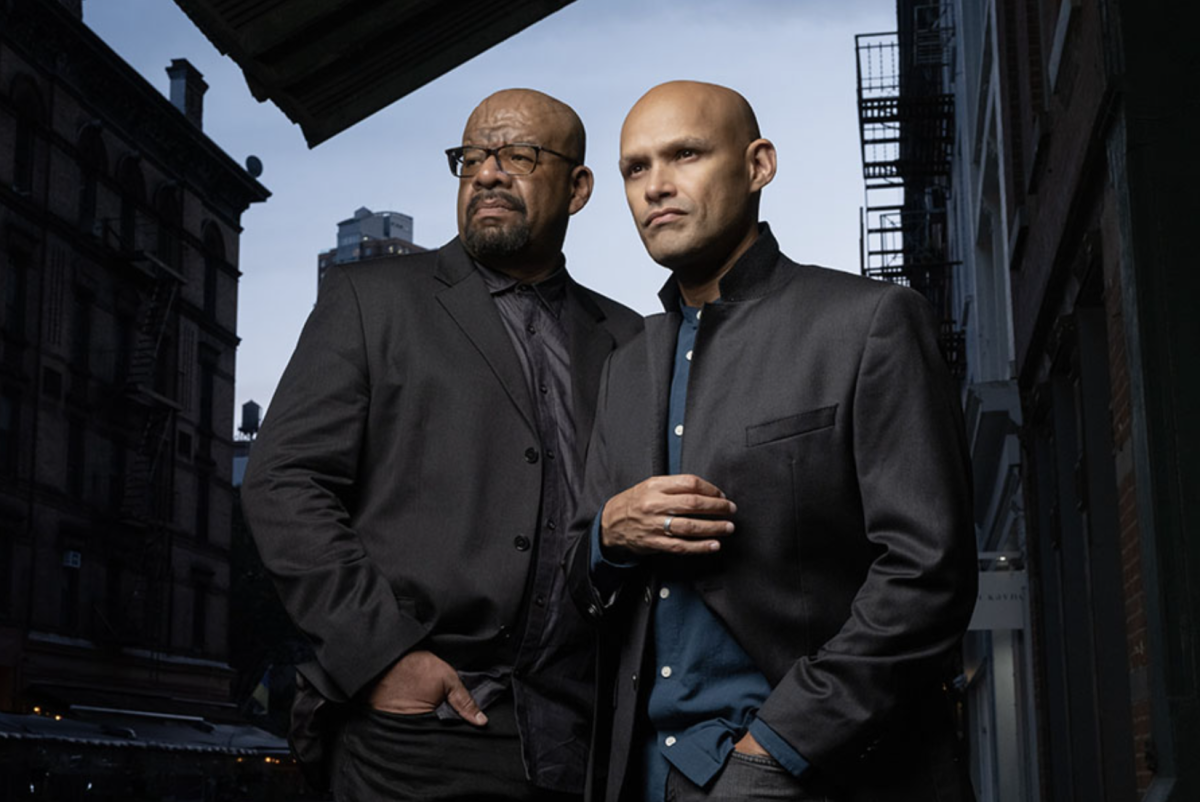In recent years, the cultural cache of musical festivals has risen exponentially. These music festivals usually take to wide open spaces in the Southwest or California where the weather is more conducive to outside frolicking. However, there is a demand among the youth of the East Coast for similar events and Boston’s answer is Boston Calling. Held in the fall and spring, Boston Calling is a weekend musical festival held at the City Hall Plaza.
Despite offering many of the same things as Coachella and Lollapalooza, such as food trucks, beer gardens and famous headlines, the mood and aesthetic of Boston Calling is decidedly different from many famous festivals. The festival here is held in a much smaller space than other large festivals such as Coachella and recently for the Governor’s Ball in New York. Realizing it would be nearly impossible to hold a large musical festival in the middle of crowded New York (barring Times Square, but hipster cred needs to be considered), the organizers of Governor’s Ball hold the festival on an island, a short ferry ride away from Manhattan. Bonnaroo, in Tennesee, is held on a campground of 700 acres. There is no such space in the middle of Boston and City Hall Plaza remains a tight space for a festival of such magnitude. However, Boston Calling may be trying to only serve the demand of Boston’s youth rather than attempting to become a destination festival like Coachella.
The City Hall backdrop also creates a different vibe for festival goers in terms of outfits and backdrops for future Instagrams. There is little California hippie vibe in Boston and less surrounding desert. The backdrop of historical building creates a different environment that is less compatible with typical festival wear. However, the word “festival” has certain connotations that there will inevitably be more than one ill- advised Native American head dress.
The music lineup this Fall includes radio friendly indie rock including indie darlings Alt-J and Of Monsters and Men, an undeniably crowd pleasing lineup.
However, Boston Calling should work to establish more diversity in its lineups. While cohesive, there are almost exclusively pop and soft rock bands. The lineup could attract more people if it attempted to add some R&B artists.
If the ‘90s were about small grunge concerts in dive-bar venues or heavily produced R&B, and the 2000s were about big stage shows and tours (think Warped Tour), the 2010s are the heyday of the festival. So dust off your flower crown and tattoo stretch choker necklace. It’s time for Boston’s bi-annual music festival, Boston Calling. Since its genesis in the spring of 2013, Boston Calling has been one of very few high-profile festivals to feature primarily indie, alternative, rock and pop music.
Although many of the better established festivals, such as Coachella and Austin City Limits, are in the South and Southwest of the United States, the East Coast has only a few, more recently established festivals to call its own. Governor’s Ball, founded in 2011, is held outside New York City in June, and Boston Calling, held in May and early September, takes place at City Hall Plaza..
So, in an era of festivals, what’s notable about Boston Calling in particular? First, there are the inherent spatial limitations. The festival here is held in a much smaller space than Coachella (in Southern California) or even New York’s Governor’s Ball. Bonnaroo, in Tennessee, however, is held on a camp ground of 700 acres; there is no such space in the middle of Boston. Second, other festivals are “destinations,” but most of Boston Calling’s attendees have already arrived well before the event, as a part of the local music scene or its college-student-heavy community.
The audience, therefore, is almost a full tell about the Boston Calling lineup and festival ideology. Whereas at Coachella, you’d be just as likely to run into someone from New York City as you would from California, at Boston Calling, most of the people there will be at least part-time Bostonians. Therefore, the lineup always includes heavy local influences: this year the lineup feature Boston- based band Grey Season and Cambridge-based band Dirty Bangs as the openers on Saturday and Sunday, respectively.
With that said, despite the organizers’ best, most Boston- centric intentions, the big acts have been known to upstage their Boston venue. The 1975, a pop and rock group from Manchester who headlined at Boston Calling last fall had a stage presence that heavily conveyed their indifference to performing for the younger, daytime festival crowd. Thus similar concerns crop up around the pop group Walk the Moon on this fall’s lineup – their single “Shut up and Dance” has been at the top of the billboard charts all summer; hopefully the big acts get into the small-city spirit and embrace the unique festival for what it is.
Other than Walk the Moon and Hozier, who are both known for their big billboard singles (Hozier’s being “Take Me to Church”), most of this year’s other acts are indie and soft-rock darlings. Of Monsters and Men, who had a big hit back in 2011 with their single “Little Talks,” will be a crowd-pleaser, but to the indie true believers they’re a bit of an eye-roll moment. The danger with emphasizing soft rock so often in the lineup is that the show may come off as sleepy, especially during Gregory Alan Isakov and Daughter, who are both on the acoustic side. Both are very talented acts, but quiet.
CHVRCHES is one of the real indie “gets” of this festival. With the album, “Eyes Wide Open” dropping at the end of this month, the band’s act is one to look forward to this fall. In that vein, though, Bully may also be a pleasant surprise — I’m expecting the to be the great live show that San Fermin was this fall. Both of those two stand head and shoulders above similar acts that will also be appearing, for example MisterWives, whose music is not unpleasant, but mostly consisting of breathy indie cliches.
Boston Calling has been around since 2013 and growing ever since — at least for now, it looks like Boston Calling is a fixture. But the Boston music scene is in given the advent of concerts on Lawn on D. Such summer shows, at the big public playground downtown, have drawn acts like Passion Pit, who played at installment in 2013. Boston Calling isn’t the Lawn on D, or the Jamaica Plain or Somerville Porch-Fests, which are known for their smaller, more local, grungy, and free atmosphere. In striking a balance between pop appeal and local relevance, Boston Calling has to keep trying to find its niche as it approaches its five year mark.
Photo Courtesy of Flickr




